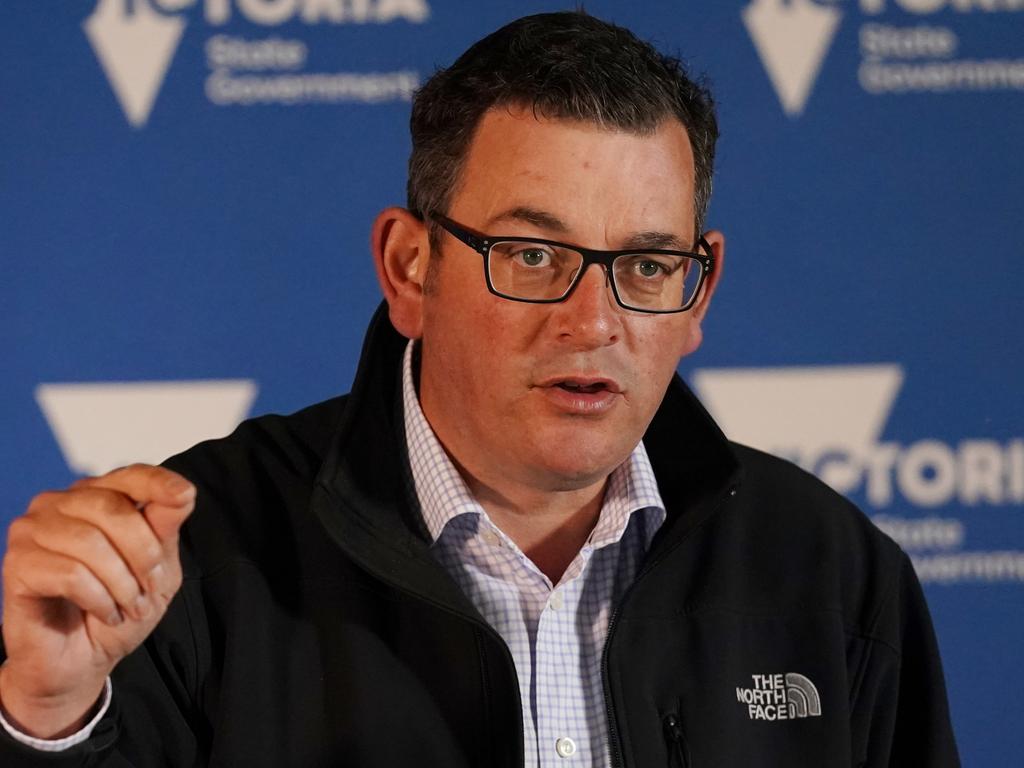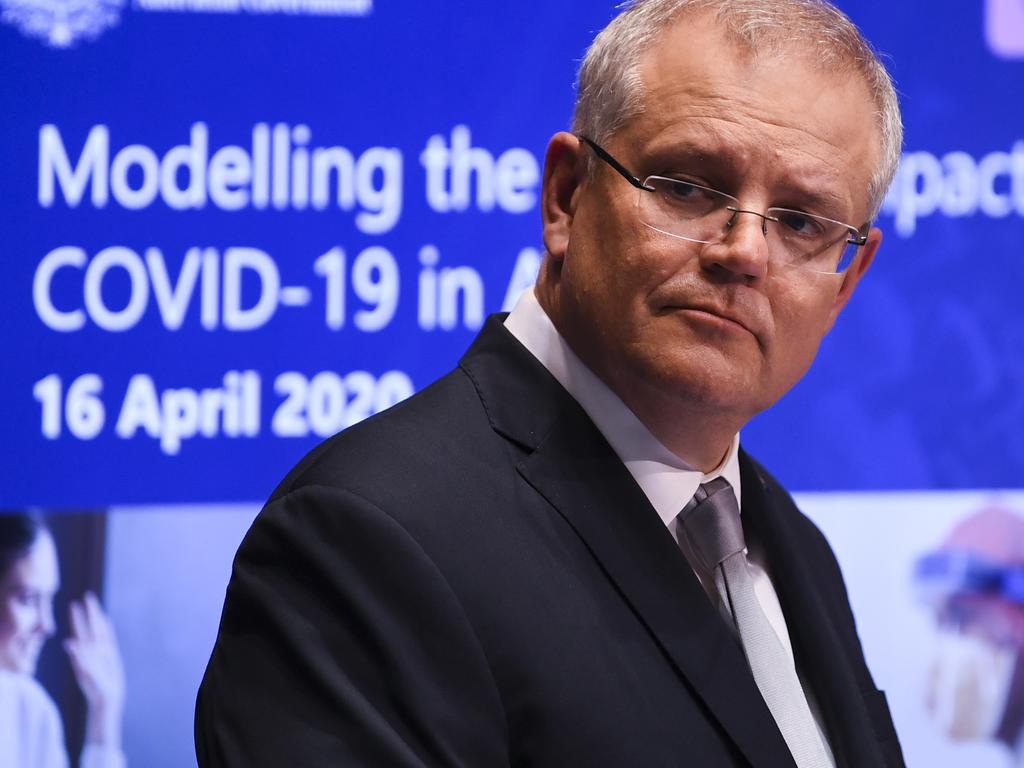Victoria to borrow $24.5bn emergency loan
The move will see state debt increase to more than $70bn as the Andrews government commits to its ‘big build’.

The Andrews government will borrow up to $24.5bn in emergency funding to help address the economic crisis brought on by coronavirus.
The move would see state debt increase to more than $70bn next financial year – up from less than $23bn in 2018-19.
Victorian Treasurer Tim Pallas said $10bn of the emergency fund would be spent in 2019-20, with the remaining additional $14.5bn set aside as a “Treasurer's advance” for 2020-21.
“The Treasurer's advance will be a process that will enable the government, should it need to, to draw upon additional funds for the purposes of dealing with … the additional and continuing demands on our health system, but also the additional effort that government will have to put in place for the purposes of generating greater economic activity, and … to make provision for those in the community who are doing it tough and need a government that is committed to assisting them to see this event through,” Mr Pallas said.
State borrowings were already forecast to reach $47bn next financial year and $55bn by 2023, without accounting for cost blowouts on major projects, after the government opted to borrow an extra $25.6bn over ten years ahead of the 2018 election to fund infrastructure.
The Treasurer said the $24.5bn would be sought in addition to $35.9bn which the government had calculated as being required to see it through to the postponed May budget, which is now due to be handed down before the end of the year.
Intended to last six months, the $35.9bn has been calculated as half of last year's normal government expenditure, plus 2.5 per cent to account for growth.
The state opposition and crossbenchers are expected to be briefed on the spending proposals over the next 24 hours, ahead of an emergency sitting of state parliament next Thursday April 23.
Mr Pallas conceded Victoria's debt levels would rise substantially, in the “likely” event that much of the $24.5bn is spent.
“If you’re looking at the federal government, they're looking at raising $300 billion through the debt markets, and essentially, the state of Victoria will necessarily, were we to apply that $25bn to purposes, it would add to debt. There’s no question,” he said.
‘10-year strategy’ to pay it off
Mr Pallas said the Victorian government would develop a 10-year strategy for paying off the debt.
“This will be a generation-defining event,” he said.
“How quickly, and how effectively we rise to the challenges that we're confronting will really define how well the Victorian economy bounces back, but anybody who thinks that this will be a V-shaped recovery I think is being unreasonably optimistic.
“It's going to be a hard slog for a lot of people, and the government is making the provisions necessary to protect the welfare of the community and preserve the long-term vitality so that we're not compromising the opportunities for future generations.
“We will be making investment, we will be building infrastructure, and we will be reforming the way the economy operates … and we have to do it because the future demands it."

Hope for bipartisanship
Mr Pallas said he hoped the opposition and crossbench would bring the same bipartisan “sense of collegiality” to passing the legislation required to secure the funds as state and territory leaders had brought to the National Cabinet process.
“I think the more sense of shared destiny and purpose we can give, the greater the level of comfort and consolation we can give to the Victorian people,” he said.
“Parliamentarians have all played the game of politics. It's in many cases a dark art, but this the big challenge of our time, and the challenge of our time is to demonstrate that we're better than the art that we practice when the need arises, and it has arisen, and everybody has to answer that call.”
‘Massive new borrowing’: Opposition
Opposition Leader Michael O'Brien said the $24.5bn represented a “massive new borrowing and all the interest will have to be paid back by our kids and grandkids”.
“Victorians deserve to know exactly what all this new debt will be used for. Labor’s new borrowing must not be wasted on cost blowouts or bureaucracy,” Mr O'Brien said.
Asked whether the $24.5bn was a “conservative projection” of the money required to deal with the COVID-19 economic crisis, Mr Pallas said it would “certainly do us until budget time”.
“What does that mean in terms of will we draw down on all of this money? I don't know, to be honest,” he said.
“I suspect we'll just have to see how this economic event, as opposed to the disease event plays itself out, but our expectation is that the state will need to draw on a substantial amount of those funds.”
Unemployment likely to double
Mr Pallas said he took only “wry satisfaction” from Thursday's jobs figures, which showed Victoria's unemployment rate falling from 5.3 to 5.2 per cent, predicting that figure would double next month.
“The federal government is putting the number at around about 10 per cent. Our modelling is pretty much the same, between 10 and 11 per cent,” he said, adding that he expected gross state product to fall by about 10 per cent.
“Make no mistake, the scar tissue of this economic event, putting aside the health consequences, the economic consequences will be profound, and they will last for quite some time.
“A lot of people will go through a lot of hardship as a consequence of this, but I want them to know that as we go into it as the strongest economy in the nation, we will be there as a government, looking after the community as best we can.”
‘Big build still going ahead’
Mr Pallas said the government would not be rethinking its infrastructure agenda.
“The one thing I won't be doing is leading market down and saying that the government's lost its nerve and its commitment to deliver on a big infrastructure build,” he said.
“Indeed, were we to do that I think the impact would be quite calamitous for the construction industry and that would infect many other industries at a time when we're actually trying to revitalise and provide some incentives.
“Make no mistake, we won’t be pulling back on our commitment to build infrastructure and grow jobs.”
‘Economic reform likely’
The Treasurer also pointed at economic reform, saying "the way that we manage our economy, the way the states derive income, needs to be reformed."
"We are going to have a community that will be suffering substantially in terms of their capacity to generate income for some time to come, and the state is going to have to be conscious of that fact and review how we can take some of the burden off of taxpayers," he said.








To join the conversation, please log in. Don't have an account? Register
Join the conversation, you are commenting as Logout